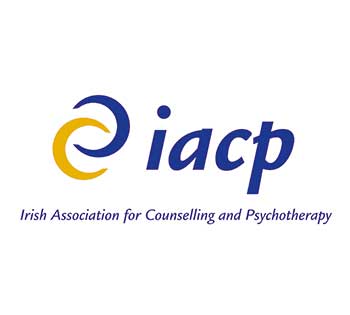IT’S THAT TIME of year again when many households are preparing for the start of the new school year. As the carefree days of the summer break come to an end, getting back into a routine can feel overwhelming for both parents and children.
Most children will settle well into the new school year, however there will be some children who are going to experience heightened anxiety about the return to the classroom.
For example, the transition to second-level education has been identified as a major landmark for young people. They will have to adjust to new teachers, new surroundings and navigate new peer groups.
The “Growing up in Ireland” report found that at least a fifth of young people transitioning from primary to secondary school reported to being anxious.
The report also found different factors influence transition experiences. Girls were more likely to experience heightened anxiety and became less self-confident as learners than boys.
Young people with special educational needs experience the most anxiety between the ages of nine and 13. Younger children may experience separation anxiety, which has been identified as the most common type of anxiety for school age children.
Signs your child may be anxious
Characteristics of a child’s behaviour may change if they are anxious. Look out for excessive worrying, sleep problems, loss of appetite, irritability and difficulty in concentrating.
Your child may also stop interacting with friends and family. There are often physical symptoms of anxiety, such as headaches, abdominal pain and nausea.
One consequence of anxiety is avoidance. If left untreated children may refuse to go to school to avoid anxiety provoking situations, which can lead to poor academic achievement and social isolation in the long run.
Why do children get anxious?
Most children, as they encounter a big change like going back to school after the summer or starting a news school, experience insecurities that lead them to believe the worst-case scenarios in a variety of situations.
This is because anxiety in children comprises the inaccurate processing of potential threats – believing that something bad is going to happen activates the fear center in the brain and sets off the ‘fight or flight’ response in the body. Adrenaline increases and the child may start to feel physical symptoms such as nausea and heart palpitations.
Their inner voice is telling them things like: “No one will talk to me”, “I won’t find my way around the place”, “everyone will look at me”, “they all think I’m weird”, and “I won’t be able to make new friends”.
This inner voice is universal, and it is there to protect us from danger. However, this inner voice can often lead to anxiety, depression, and anger.
Understanding the psychology behind the inner voice
Research in psychology has shown that our thoughts determine how we feel emotionally, how we feel physically, and determines how we behave.
The good news is that the inner voice and harmful thinking patterns can be challenged and changed. As a parent or guardian, you can help your child to understand their inner voice and help them to change it. This will enable them to feel more confident and experience less anxiety and depression.
How our thoughts affect our feelings and behaviors is a foundational principle of Cognitive Behavioral Therapy (CBT). CBT teaches you how to recognise unhelpful negative self-talk, tune in to how it makes you feel and behave, and then challenge those thoughts to come up with a more realistic way of thinking about a situation.
There are different types of unhelpful thought patterns that can cause anxiety. One of the most prevalent thoughts that young people engage in is “catastrophising”, which is coming to the worst possible conclusion without any evidence. For example, a child may think that no one will talk to them, and they will never have any friends.
Another unhelpful thought pattern that is very common is “mindreading”. For example, a teen may be walking into a classroom for the first time and think that a particular student who is looking at them thinks that their outfit/hair/makeup, etc is not cool.
Tips on how you can help your child
First, acknowledge how your child is feeling. Don’t dismiss their feelings with “don’t worry, you’ll be ok”. You may mean well, but talking about how they feel will help them with the next step, which is challenging the inner voice that is causing them difficult emotions.
The idea is not to squash and dismiss your child’s concerns and worries, but rather have a closer look at them and identify the thoughts behind them.
To do this, help your child to identify and write the thoughts down (or draw for younger children). Then ask questions such as “remember when you started your summer camp (or any other activity where they didn’t know many other children), how did you manage to make friends?”
You can also ask them to think about times when they were able to show their strengths. Gather as much evidence that you can when your child has shown coping skills, found their way, made friends, etc., and write them down beside the thoughts.
Once you have gathered all the evidence, you can ask your child to come up with a more helpful way of thinking about going back or starting school. The new way of thinking might go something like: “Ok I am a bit nervous about starting a new school, it will take a few days to find my way around and make new friends, but I was able to do that in my summer camp”.
In the case of “mindreading”, ask your teen to come up with possible alternatives. What other thoughts might be going through the pupil’s head who is looking at your child as they walk into the classroom? It might be something like: “I think I’ll get my hair coloured” or “I shouldn’t have shouted at my sister before I left school”.
The idea is to help your child manage their thoughts in a more balanced way. There are always other ways of looking at things or interpreting a situation. Helping your child to think about past times when they were able to show resilience or good coping strategies will increase their self-belief and confidence to cope in current challenging situations.
Tips on how to help the younger child
For helping younger children, sit down with them and tell them you are interested to hear more about what is worrying them. Ask them how big the worry is, and where in their body they feel it. Asking “what would you like to tell your worry?” is also helpful.
You can also get the child to draw their worry and let them come up with a different ending to their worry.
RELATED READS
It’s also important to ask the child to tell you what he or she needs from you right now, and assure them that the feeling will pass.
- Ask them ‘how big is your worry?’
- Find out where in their body they feel their worry.
- Ask “What would you like to tell your worry?”
- Get the child to draw the worry.
- Let the child come up with a different ending to their worry.
- Ask your child what he/she needs from you right now.
- Assure the child that the feeling will pass.
This approach will teach your child how to manage any emotions and that emotions are not “bad” they just come, and they go again and there is no need to fear them.
Parents and caretakers can act as role models. Children look toward the adults in their lives and learn from them how to behave in situations.
If you are a worrier, your anxiety is more likely to transfer to your child. Start paying attention to how you behave toward challenging situations and how you communicate with your child.
Let your child know that talking about mental health issues is normal. A good way to do this is to talk about how you experience emotions. By talking about your feelings, your child will be encouraged to talk about feelings and learn that it’s ok to experience painful emotions
Risk factors that contribute to the development of anxiety in children
Children of parents with panic or anxiety disorders are at higher risk for developing anxiety disorders themselves. (Lavallee et al., 2011). For example, a child may notice parental anxiety in certain situations over an extended period, such as a parent may be avoiding social interactions or voicing excessive worries.
This parental anxiety may lead to controlling behaviours by the parent to “protect” the child from “dangers”, which consequently develops anxiety in some children.
Good social relationships and larger friendship networks can play a protective role in helping children overcome anxiety when returning to school. Parents and caretakers can further help their children by getting involved in school activities such as attending parent-teacher meetings and school events.
The day-to-day communication between parents and caregivers and children is probably the strongest protective factor in helping children work through anxiety
Many mental health concerns develop during the teenage years as teens experience a range of challenges. Peer pressure, exam performance stress, finding and coping with sexual identity, social media, and bullying, to name just a few.
Many of those challenges they face can have adverse effects on their mental health and if left untreated, can have a range of developmental implications which usually persist into adulthood.
Research tells us that getting help as soon as possible will lead to quicker recovery as any issues can be addressed before deeper anxiety or depression sets in.



